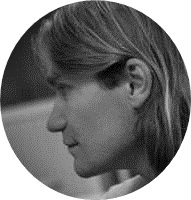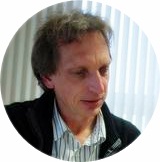
|
Ihor Stasyuk (Personal webpage )Institute for Condensed Matter Physics, National Academy of Sciences of UkraineIhor Stasyuk was born on 23 September 1938 in Berezhany, Ternopil region, Ukraine. He graduated (1959) and defended his PhD (1963) at the Ivan Franko Lviv State University. He became a Doctor of Sciences in 1986, obtaining Professorship in 1987 and has been a Corresponding Member of NAS of Ukraine since 1995. He has been the chief scientific researcher at Quantum Statistics Department of Institute for Condensed Matter Physics of NASU of Ukraine, Lviv since 2016. He has received awards from NASU for Scientific Achievements (2008), a Doctor Honoris Causa from the Bogolyubov Institute of Theoretical Physics of NASU (2011), and the Davydov Prize of NASU (2014). His scientific interests include the study of mathematical methods in quantum statistics, many-particle fermion and boson systems with strong correlations, quantum lattice models, ion (proton) conductors and superionic crystals, phase transitions and field effects in hydrogen bonded ferroelectrics and Jahn-Teller crystals. These interests have resulted in his authoring and co-authoring over 200 scientific papers and four books. |

|
Bertrand Berche (Personal webpage )IJL, University de LorraineBertrand Berche was born on May 6, 1963 in Metz, France. He obtained his MSc in physics and applied physics in 1987 from Henri Poincar\'e University of Nancy, later completing his PhD studies here in 1991. Since then, B. Berche has remained at the same university, which in 2009 became a part of the University of Lorraine, as Ma\^itre de Conf\'erences. He habilitated in 1997 becoming a full professor in 1998. Between 2008--2011 B. Berche was President of the Condensed Matter Section of the National Council of Universities, France. In 2008--2013 he was Director of the Physics Department at the University of Lorraine, and since 2007, has been involved in the organization of the French-German Doctoral College which subsequently became the ${\mathbb L}^4$--collaboration between Leipzig, Lorraine, Lviv and Coventry. He was advisor and co-advisor of ten PhD students and has been awarded the degree of Doctor Honoris Causa of the Institute of Condensed Matter Physics of Lviv in 2016. His research concerns mainly statistical physics, theoretical condensed matter physics and history of sciences. |

|
Christophe Chatelain (Personal webpage )IJL, University de LorraineChristophe Chatelain was born on 23 July, 1974 in Epinal (France). He received a MSc in physics from the university of Nancy, now part of the university of Lorraine. Under the supervision of Bertrand Berche, he studied by Monte Carlo simulation the influence of disorder on the phase transition in lattice spin models, in particular the Potts model. He defended his PhD in June 2000, before leaving to Leipzig to work with Wolfhard Janke. Hired by the university of Lorraine in 2001, Christophe Chatelain developed research activities in statistical physics in various directions, particularly in the study of aging phenomena in quenched systems and of random classical spin models as well as quantum spin chains. During the academic year 2012--2013, he was a visiting professor at the Indian Institute for Science, Education and Research (IISER) at Thiruvananthapuram (India). He defended his habilitation to supervise research in December 2012. He also enjoys giving science conferences to abroad audience. |

|
Christian von Ferber (Personal webpage )Coventry UniversityChristian von Ferber was born on May 15, 1961 in G\"ottingen, Germany. He completed his PhD at the University of Essen in 1993. His subsequent research was performed in several leading scientific centers, including Tel Aviv University, as a Fellow at the Minerva Foundation, and the universities of Dusseldorf and Freiburg. He was also a Guest Professor at the University of Linz and a Marie Curie Fellow at the University of Krakow. In 2003 he earned his Habilitation (Venia Legendi in Physics) at the University of Freiburg and now holds a privatdozent position in the university of Dusseldorf. Since 2006 he has worked at the Applied Mathematics Research Centre in Coventry University (UK), where now he holds a position as a Reader. The degree of Doctor Honoris Causa of the Institute of Condensed Matter Physics was conferred on Christian von Ferber in 2012. His scientific interests mainly concern soft matter physics and complex systems. Subjects of his analyses range from polymers, colloids and disordered magnets to transportation networks. |

|
Flavio Nogueira (Personal webpage )Freie Universität BerlinFlavio Nogueira is a German-Brazilian physicist specializing on the application of quantum field-theoretic methods to condensed matter systems. After his PhD in Brazil he worked as a researcher at the Center for Theoretical Physics of the Ecole Polytechnique, Palaiseau, France before joining the Institute for Theoretical Physics of the Free University Berlin in 2000, where he worked as a lecturer and researcher until 2011. After 2011 he has worked at the Faculty of Physics and Astronomy of the Ruin-University Bochum. Since 2015 he has been a research associate at the Leibniz Institute for Theoretical Solid State Physics in Dresden. His recent publications and research interests deal mostly with topologically protected quantum states of matter. |

|
Dragi Karevski (Personal webpage )IJL, University de LorraineDragi Karevski was born 18 December 1970, in France. He studied in Longwy, France, where he received his BSc. He later completed his MSc in theoretical physics (1994) at the Henri Poincar\'e University of Nancy where he also finished his PhD studies under the supervision of Lo\"{\i}c Turban in 1996. Since completing his PhD he has been a member of the Groupe de Physique Statistique, at the University of Lorraine, becoming a full professor in 2011, and an associate professor at the University of Luxemburg in 2009. Before this he was an assistant professor at the University Henri Poincar\'e (1997--2010) and has been a visiting professor at the Free university of Berlin, at the Forschungszentrum in J\"ulich, at the University of Buenos Aires and the University of San Paulo. His main scientific interest are in quantum non-equilibrium dynamics, quantum quenches in closed and open systems, quantum phase transitions in inhomogeneous/disordered systems. |

|
Yuri Kozitsky (Personal webpage )Maria Curie-Skłodowska UniversityBorn in Kremenchuk, Ukraine on 21 April 1949. Yuri Kozitsky graduated from Physical Faculty of Lviv State University in 1972 and defended his PhD supervised by Prof. I. Yukhnovskii in 1981. Kozitsky worked at the Chair of Higher Mathematics of Lviv Trade-Economic Institute between 1982 and 1996; where he was the head of Chair from 1984 onwards. In the of 1992 he received a Doctor of Science degree. Since 1996 he has been a professor at the Institute of Mathematics of Maria Curie-Sk\l odowska University in Lublin, Poland. His main scientific interests include the study of mathematical methods of quantum physics; dynamics of interacting particle systems and random structures. He has also coordinated a number of international research project, including EU Project STREVCOMS PIRSES-2013-612669 and coauthored a monograph Quantum Anharmonic Crystal: A Path Integral Approach, EMS Tracts in Mathematics, 8, Zurich, 2009. |

|
Oleg Derzhko (Personal webpage )Institute for Condensed Matter Physics, National Academy of Sciences of UkraineOleg Derzhko was born in Lviv, Ukraine, 1960. He graduated from Lviv Ivan Franko State University in 1982. Later, in 1988 he defended his PhD thesis and habilitated in 2004. During the years between 2003 and 2016 he was the head of the department for the Theory of Model Spin Systems at ICMP NAS of Ukraine, Lviv, which in 2016 amalgamated with the department of Quantum Statistics. Since 2016 he has continued to remain the head of this newly created department. He is also currently lecturing at the Lviv Ivan Franko National University and Lviv Polytechnic National University. Oleg Derzhko’s main research interests lie in classical and quantum spin systems, properties of ferroelectric materials, spin glass and liquid crystals. |